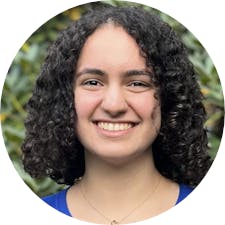Five students brought their case against divestment from 10 companies with ties to the Israeli military before Brown’s advisory committee on Monday evening.
The Advisory Committee on University Resources Management, or ACURM, will make a recommendation on divestment to President Christina Paxson P’19 P’MD’20 by Sept. 30. Brown’s Corporation will then vote on divestment during its October meeting.
The presentation was one of several online public forums being held by ACURM this month. Last week, six students representing the Brown Divest Coalition presented their proposal for divestment. ACURM will hold open listening sessions on Tuesday and Wednesday allowing community members to directly address the committee.
The anti-divestment presentation was based on a 39-page memo written by a group of students, including Monday’s presenters, who oppose divestment.
These students argued that the BDC proposal does not meet the committee’s requirements for divestment, refuting the claim that Israel’s actions constitute a redressable social harm.
ACURM will only recommend divestment if it determines that a company causes social harm that could be mitigated by divestment, or that a company perpetuates a “social harm so grave that it would be inconsistent with the goals and principles of the University,” according to the committee’s charge.
During the group’s presentation, Brooke Verschleiser ’25 told the committee that recommending divestment would be “reductive,” “antithetical to free inquiry” and “damaging to the University’s reputation and finances.”
When questioning the presenters, ACURM Chair James Kellner raised a perceived contradiction in the group’s argument that divestment would be both symbolic and also perpetuate social harm against Jewish students on campus and Israelis.
In response, Verschleiser aimed to reconcile these two points.
“I do not believe divesting from these 10 companies will have any effect on alleviating the suffering of Palestinians, or would affect the ability of Israelis to protect themselves,” Verschleiser said. But divestment would have a negative impact because of “what it signals to the world and to the Jewish students on this campus,” she added.
In his statement to the committee, former Herald staff writer Lev Kotler-Berkowitz ’27 asserted that divestment would cause “the isolation of Jewish students — and our sense that our views are not welcome in class or conversation — (to) increase exponentially.”
The presenters also claimed that divestment would signal that Brown was taking a side in the Israel-Palestine conflict — thereby “stifling” productive dialogue and discussion between students with different viewpoints, which they say contradicts the University’s mission.
Anila Lopez Marks '26, a representative of BDC, wrote in a statement to The Herald that the group believes the anti-divestment presentation “failed to disprove the social harms clearly articulated in our report.”
Kellner also asked the presenters how they would address students who are “morally outraged” by Israel’s actions, even if they agree with the presenters’ argument that this conduct does not meet the legal definition of apartheid or genocide.
In response, one of the students present on the forum contended that it is ACURM’s role to “distinguish between those understandable feelings of moral outrage and the facts on which they are based.”
Other ACURM committee members asked clarifying questions to the student presenters on topics such as the specific contributions of the 10 companies to Israel and Israel’s settlements in the West Bank.

Sophia Wotman is a University news editor covering activism and affinity & identity. She is a junior from Long Island, New York concentrating in Political Science with a focus on women’s rights. She is a jazz trumpet player, and often performs on campus and around Providence.





